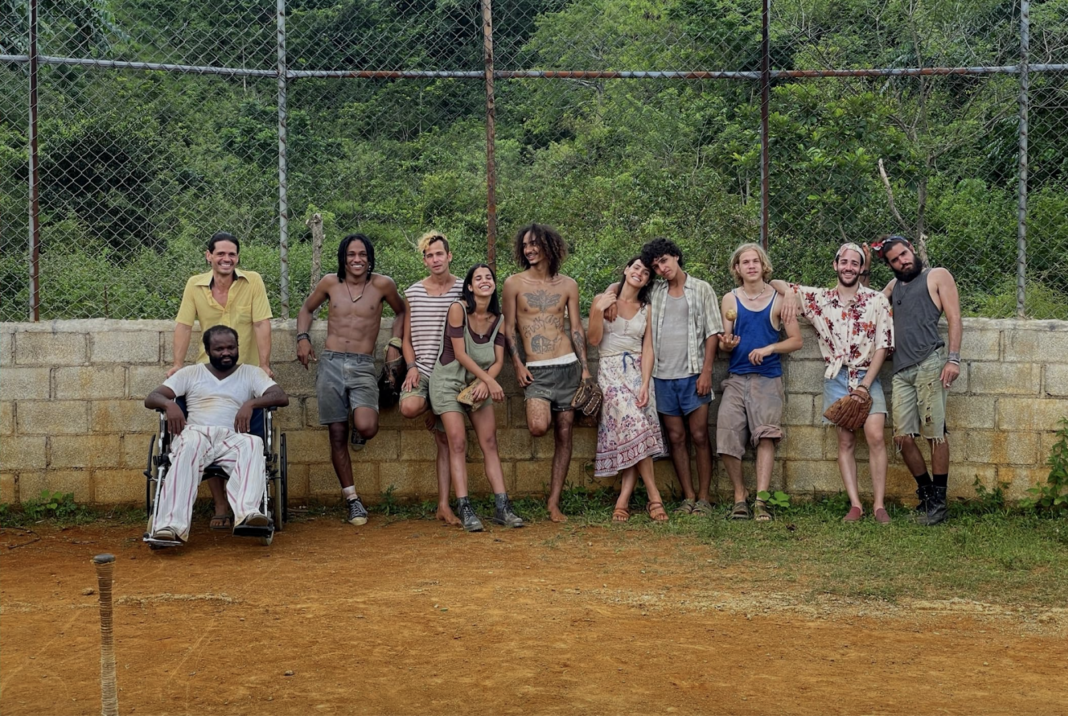
Directors Michael Schwartz and Tyler Nilson premiered their latest project, “Los Frikis,” at the Miami Film Festival this April alongside academy-award winners and producers Phil Lord and Christopher Miller.
The creatives received standing ovations and a $20,000 cash prize after highlighting the importance of finding joy when facing tragedy with their dramatic coming-of-age film.
“Los Frikis” is inspired by a true story which follows young and struggling Cuban rockstars in the middle of Fidel Castro’s rule.
As the prime minister bans rock music, the young musicians become desperate to ease their pain. They then inject themselves with HIV to live in federal treatment homes for a chance at paradise.
The characters’ rebellious attitudes are identical to the real Cuban punk subculture that originated in the 1980s. Cuban Frikis, a Spanish play on the word “freaky,” wore mohawks, tattoos, piercings and long hair to rebel against societal expectations.
When the AIDs epidemic reached Cuba in the 1990s, allegedly over 200 Frikis injected themselves with the virus to live in health clinics.
The creative duo casted native Cuban actors, such as Héctor Medina and Eros de la Puente, used historical objects instead of replicas and let actors improvise to preserve the film’s depiction of authentic Cuban culture.
Endless research went into constructing period accurate sets. The filmmaker’s allegiance to authenticity led them to use a specific wood from 1990s Cuba to build a practical barn.
In instances when the Cuban actors couldn’t travel, Schwartz wouldn’t settle for replacements. Schwartz went as far as learning how to speak and write Spanish to adapt to his actor’s needs.
“I think we just don’t make the movie if we can’t get the Cubans here yet,” Schwartz said.
Medina was just as dedicated to embodying Paco, the film’s protagonist. The Cuban native walked 25 miles every day and sent pictures of his meals to the directors as part of his physical training.
“By the time he arrived in the Dominican Republic to shoot his scenes, he was transformed,” Schwartz said.
Schwartz recalled Medina saying he was starving while filming. Medina denied food offers, saying it’s good he felt the same as Paco.
Contrary to most directors, Schwartz and Nilson didn’t film with a bonafide vision. They listened to their actors’ input to modify the film.
Schwartz would incorporate genuine reactions to 1990s Cuba’s grueling conditions into scenes. Actors’ dialogue and scene suggestions were welcomed and fostered.
“We might be more similar to documentary filmmakers,” Schwartz said. “We can see the beauty, pain and hardship and help organize it, but we’re not the ones generating it.”
Combining the character’s youthful humor and impending death proved challenging. Producers Lord and Miller advised Schwartz and Nilson to not solely explore the characters’ tragedy, but also their joy.
The directors included humorous banter to maintain realism and highlight the characters’ relationships, increasing the audiences’ dread over knowing the characters will eventually succumb to HIV.
“These characters adjust and they still found time to joke, play and laugh,” Schwartz said. “To ignore that feels like we won’t be telling the whole story.”
Character arcs are integral to “Los Frikis” as HIV began changing the character’s physicality and mentality. Lord focused on one character at a time when rereading the script to ensure they all had a consistent impact and presence.
Every character’s actions and dialogue culminate in the film’s exploration of finding laughter and family in the darkest moments. Its ending also holds special meaning to those familiar with Frikis culture.
“There’s sort of an exchange that was made between the real Frikis in Cuba in the 1990s that was: we will sacrifice our future for the now,” Schwartz said.
An energetic punk song is played at the film’s end to highlight the characters commitment to Frikis culture instead of their sadness.
On April 6, the film’s world premiere was held at the Adrienne Arts Center’s Knight Concert Hall to wide acclaim. “Los Frikis” was then awarded the $20,000 Marimbas award, an accord presented to films jurors deem exemplify cinema’s bright future.
“The story had beautiful character arcs. We saw the characters react to an increasingly difficult authoritarian rule and cope using the resources that they had at their disposal,” premiere attendee and professor Elizabeth Mateu said.
“Los Frikis” touched hearts and healed souls as Medina received a heartfelt letter from an attendee who grew up with Frikis in Cuba the day after the premiere.
“Watching Los Frikis at its Miami Film Festival premiere is one of my favorite movie crowd experiences,” senior motion picture major Xiu Meiying Hau said. “The Cuban cast did a phenomenal job portraying each character, and I can’t wait for the entire world to discover them.”
Schwartz and Nilson are working to have the film purchased by a distributor to give their Cuban crew the chance to shine.
“People are afraid to show vulnerability and to show strength in the way this movie does,” Schwartz said. “I think it can inspire people to live their best lives, to feel alive every moment.”
Cement the Frikis legacy and get the chance to watch the poignant film in theaters by supporting “Los Frikis” on their Instagram @losfrikis.movie and movie review platforms.






